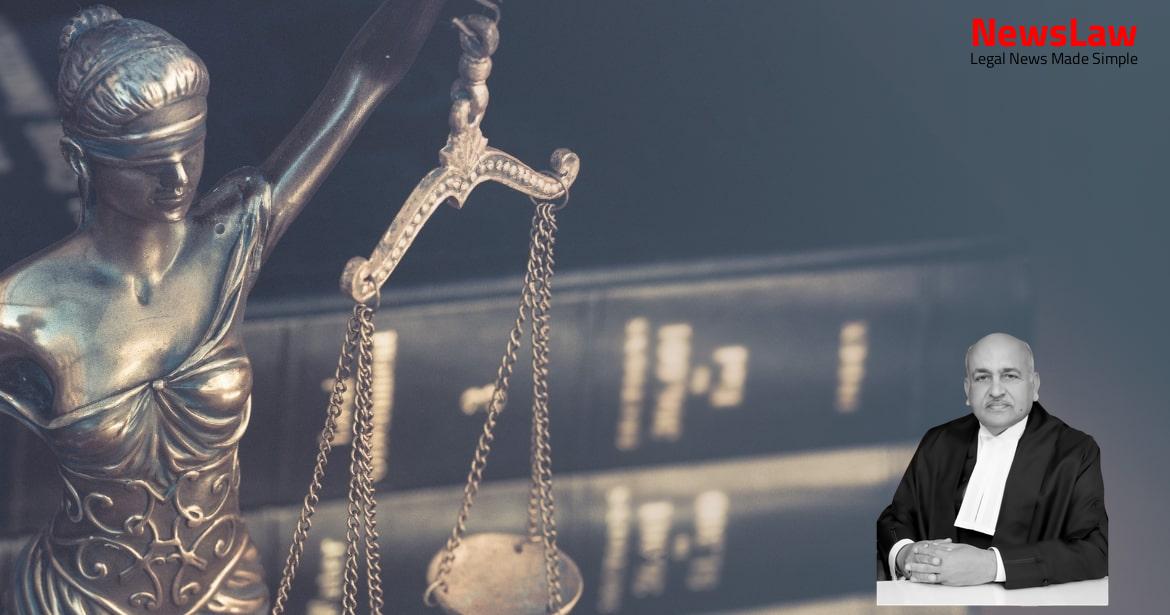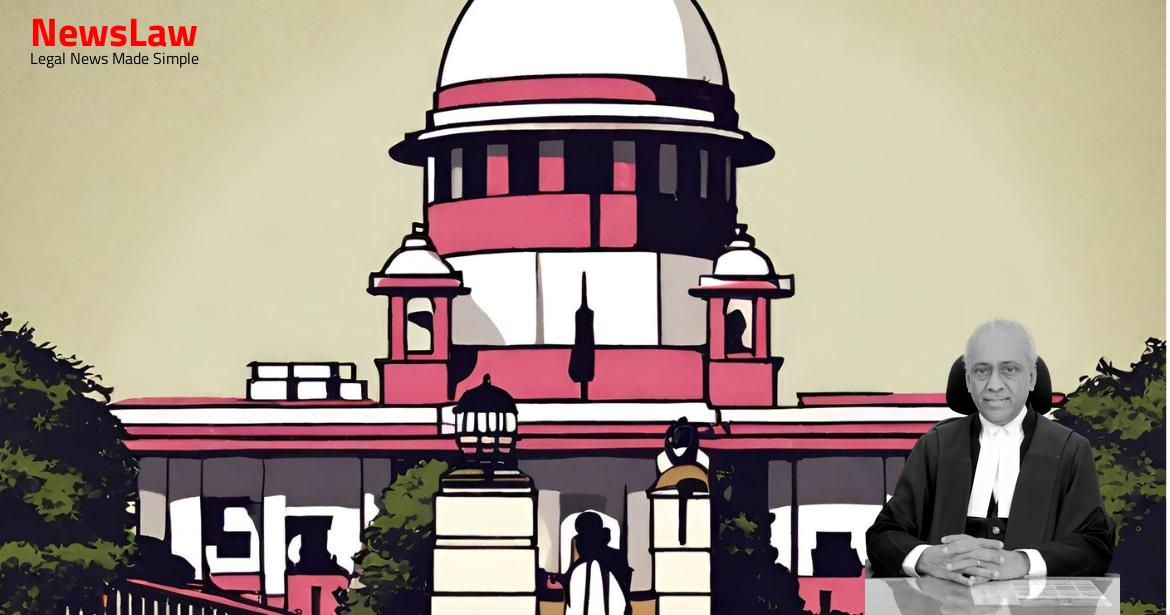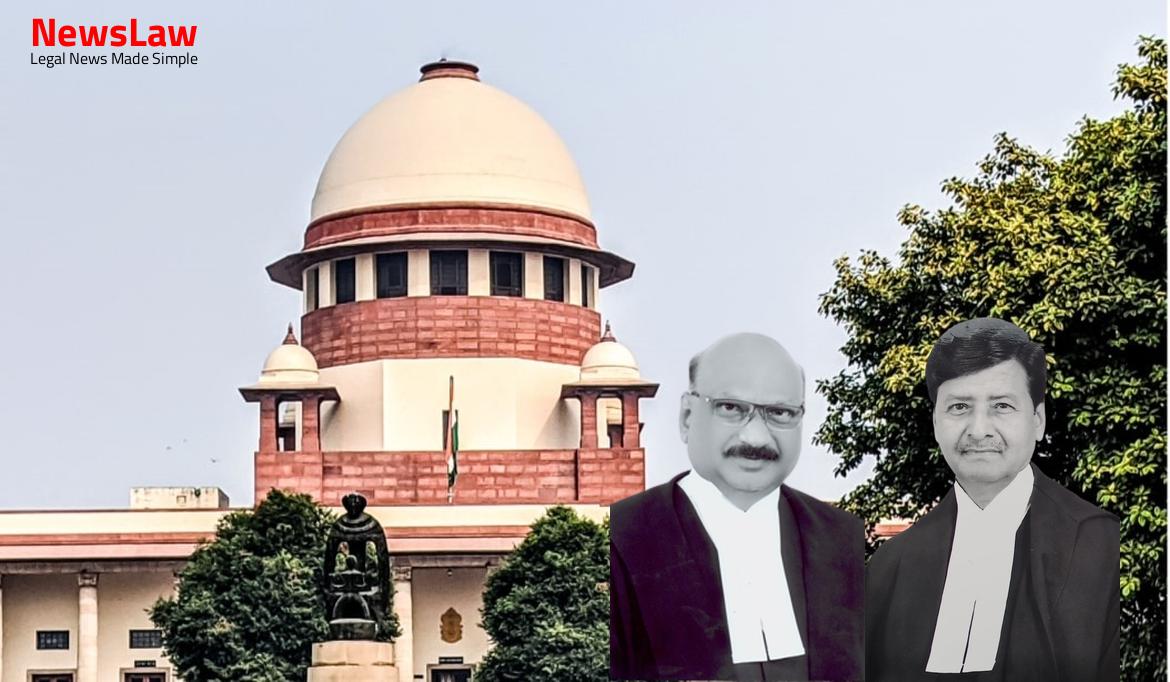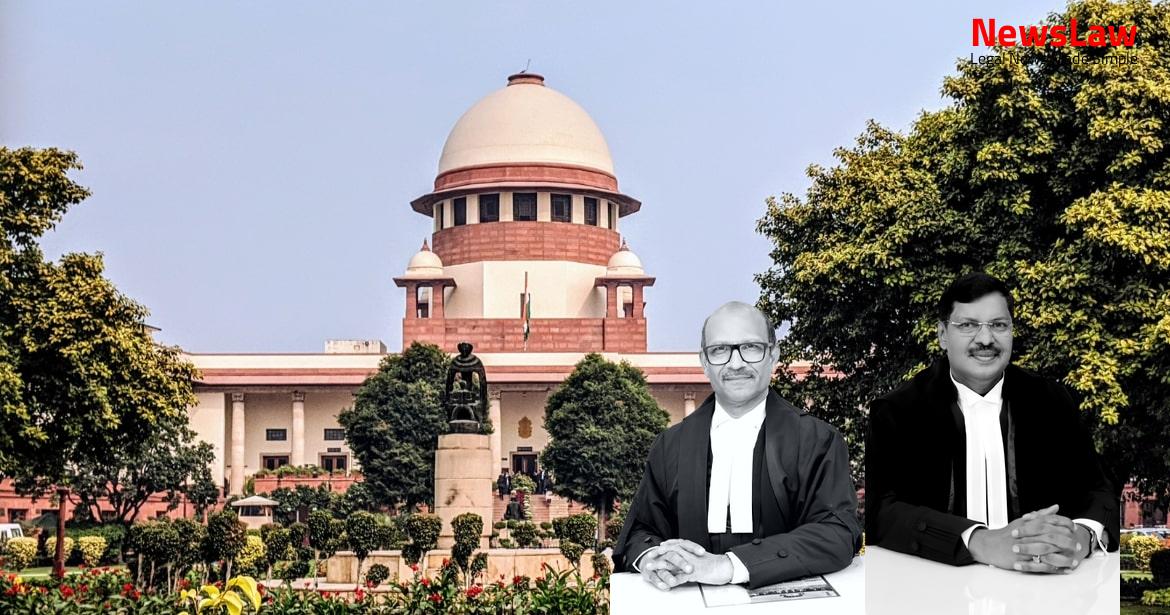In a significant legal development, the Supreme Court of India has delivered a judgment in a case involving the conviction under Section 302 IPC with a modified sentence. The court carefully considered all aspects of the case to ensure justice for the parties involved.
Facts
- The Sessions Court found the appellant guilty of the offence under section 302 r/w 34 IPC and sentenced him to life imprisonment with a fine.
- The other two co-accused were acquitted.
- The High Court confirmed the conviction and sentence passed by the Sessions Court.
- The appellant was released on bail earlier during the proceedings.
- The appellant pleaded not guilty during section 313 Cr.P.C questioning.
- The appellant was acquitted of the charge under section 25/27 of the Arms Act.
- The appellant’s appeal was dismissed by the High Court in 2011.
- Sub Inspector of Police Satish Verma prepared inquest report and site plan during the investigation.
- Investigating Officer recorded statements of witnesses and recovered pistol and empty cartridge on pointing out by the appellant.
- The Investigating Officer collected bloodstained soil, articles like torch, cot, quilt, blanket, and lantern.
- Post-mortem conducted by Dr. R.K. Verma revealed the cause of death due to firearm injuries.
- Charge sheet filed against all four accused for the offence under section 302 IPC and against the appellant for Arms Act offences.
- Appeal filed by the appellant after being charged for the crime.
- Bail granted to the appellant in the Sessions Trial No. 208 of 1998.
- Evidence presented in Sessions Court included testimonies of witnesses and documentary evidence.
Arguments
- The counsel for the appellant argued that key eyewitnesses were not examined, including the wife of the deceased and the Sub Inspector of Police who conducted the investigation, which is detrimental to the prosecution’s case.
- The prosecution’s evidence regarding the eyewitness accounts was challenged, highlighting inconsistencies such as lack of bloodstains on the clothes of the witnesses who claimed to have taken the deceased to the hospital.
- The motive for the murder, involving a dispute over jaggery, was deemed vague by the counsel, questioning the establishment of the charge against the appellant beyond reasonable doubt.
- The counsel contended that the Sessions Court and the High Court erred in convicting and sentencing the appellant without proper analysis of the evidence, urging for the judgments of conviction and sentence to be set aside.
- Discrepancies, inconsistencies, and contradictions in the prosecution’s case were pointed out, particularly in relation to the roles of the accused and the lack of clarity on who was armed or shot the bullet.
- The appellant’s counsel emphasized that all accused were charged with the same offence without specific roles assigned, leading to a flawed joint trial outcome where two co-accused were acquitted.
Analysis
- The certificate from the Jailor reveals the appellant has served 13 years 6 months and 20 days without remission of a total sentence of 17 years 1 month and 9 days with good conduct.
- There was a contradiction in evidence regarding instigation under section 34 IPC.
- The appellant’s conviction under section 34 IPC by the Sessions Court confirmed by the High Court is deemed unsustainable.
- Minor discrepancies in evidence should not lead to acquittal when the basic version of the prosecution is confirmed.
- Factors like conduct in jail and time served are taken into account for sentencing.
- The appellant is acquitted of the charge under section 34 IPC while the conviction under section 302 IPC is confirmed.
- The evidence of material objects recovered from the crime scene supports the charge under section 302 IPC.
- Judgments convicting the appellant under section 34 IPC are set aside, but the conviction under section 302 IPC is upheld.
- The acquittal of other accused under section 25/27 of the Arms Act does not benefit the appellant as proof standards differ.
- Presence of a weapon at the scene of the crime and eyewitness testimonies support the charge under section 302 IPC.
- The court considered testimonies carefully to separate truth from exaggerations and decided on the conviction based on residual evidence.
- Post mortem reports and eyewitness accounts confirm the firearm injuries causing death.
- The sole accused remaining after acquittal of others cannot be charged under section 34 IPC.
- The principle of proportionality is the fundamental underpinning in the consideration of aggravating and mitigating circumstances in death penalty cases.
- Factors such as the age of the convict, probability of reformation, socioeconomic condition, family composition, conduct expressing remorse, and being a non-professional killer are considered as positive factors.
- Judicially trained minds consider various factors like the nature of the crime, societal interest, and relevant circumstances in determining the appropriate term of imprisonment when commuting death penalty.
- The power to impose a fixed term sentence or modified punishment is vested in the High Court and the Supreme Court according to the IPC.
- Constitutional courts can exercise the power of imposing a modified or fixed-term sentence, even when capital punishment is not imposed, with a minimum fixed period of 14 years as per Section 433-A of the Cr.PC.
- The sentence of imprisonment for life awarded to the appellant is modified to the period already undergone by the appellant.
- Punishment aims to deter the accused from committing further crimes, reform, and retribute.
- Reformation can be evaluated based on the accused’s conduct during the period of retribution.
Decision
- The appellant will be set at liberty if not required in any other case.
- The sentence awarded by the Courts below is modified to the period already undergone by the appellant.
- The Criminal Appeal is partly allowed to the extent indicated.
- The appellant must pay the fine amount imposed by the Sessions Court if not already paid.
- The bail bond executed by the appellant is discharged.
Case Title: SANDEEP Vs. STATE OF UTTARAKHAND (2024 INSC 771)
Case Number: Crl.A. No.-002224-002224 – 2014



